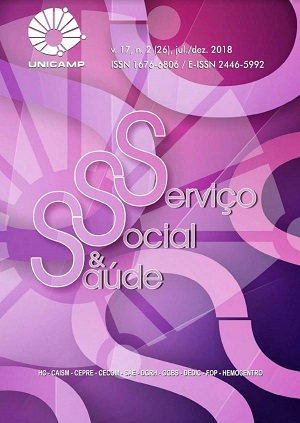Abstract
This article presents some considerations about death and dying as constitutive elements of human existence and professional practice of healthcare workers in a hospital context. It is based on the Heideggerian conception of death, in which man, recognizing death as something irremissible and unsurpassable, can open himself to its authenticity, breaking through the mode of existential alienation that is typical of contemporary society. Both in the hospital environment and in society in general, death, which is often denied, evokes diverse feelings and forms of behavior. The affections death brings about are diverse, as are the revealed ways of dealing with its real and concrete existence. In their professional practice, the healthcare worker develops actions that reveal different ways of coping with and dealing with death, which favors the acquisition of meaningful learning, and also demands an educational and pedagogical space that assists healthcare professional in dealing with death and dying in a hospital context.
References
ARIÈS, P. A história da morte no ocidente. Rio de Janeiro: Francisco Alves, 1997.
BRASIL. Ministério da Saúde. Secretaria-Executiva. Núcleo técnico da Política Nacional de Humanização. HumanizaSUS: Política Nacional de Humanização: a humanização como eixo norteador das práticas de atenção e gestão em todas as instâncias do SUS. Brasília: Ministério da Saúde, 2004 (Série B. Textos Básicos de Saúde).
CAMPOS, E.P. Quem cuida do cuidador: uma proposta para os profissionais de saúde. Petrópolis: Vozes, 2005.
GLEIZER, M.A. Espinosa & a afetividade humana. Rio de Janeiro: Jorge Zahar, 2005.
HEIDEGGER, M. Ser e tempo. 12. ed. Petrópolis: Vozes, 2002a. Parte 1
HEIDEGGER, M. Ser e tempo. 9. ed. Petrópolis: Vozes, 2002b. Parte 2
INWOOD, M. Dicionário Heidegger. Rio de Janeiro: Jorge Zahar Editor, 2002.
¬MARANHÃO, J.L.S. O que é morte. 2ª Reimpr. 4. ed. São Paulo: Brasiliense, 1998.
PINEL, H. Educadores da noite. Belo Horizonte: Nuex-Psi, livro em CD-R, 2003.
PINEL, H. Apenas dois rapazes & uma educação social: cinema, psicopedagogia e existencialismos, processos afetivos e aprendizagem. Edição experimental do autor. Vitória: UFES/CE/PPGE; 2006.
ROTHSCHILD, D; CALAZANS R.A. Morte: abordagem fenomenológico existencial. In: KOVÁCS M.J. Morte e desenvolvimento humano. São Paulo: Casa do Psicólogo, 1992, p. 142-148.
ZIEGLER, J. Os vivos e a morte: uma “sociologia da morte” no ocidente e na diáspora africana no Brasil, e seus mecanismos culturais. Rio de janeiro: Jorge Zahar, 1977.
A Serviço Social e Saúde utiliza a licença do Creative Commons (CC), preservando assim, a integridade dos artigos em ambiente de acesso aberto.


